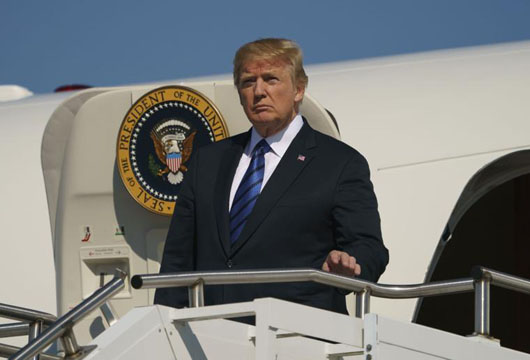by WorldTribune Staff, July 31, 2018
U.S. President Donald Trump has taken actions that hit both Russian and Chinese interests hard, reinforcing his image abroad as a “master tactician,” analysts said. Now, Trump is warming to Moscow as part of a wider strategy to counter China.
“Trump is trying to reach out to Putin and trying to detach Russia from China because he sees China as our principal competitor, both strategically and economically,” Ariel Cohen, a senior fellow at the Atlantic Council, told The Washington Times.

According to World Bank data, the United States in 2017 had a GDP of $19.4 trillion. China’s was $12.2 trillion. Russia, at $1.6 trillion, was eleventh in the global rankings behind the U.S., China, Japan, Germany, Britain, India, France, Brazil, Italy and Canada.
“People are too caught up and still locked in Cold War thinking,” retired Army Lt. Col. Daniel Davis, a senior fellow at Defense Priorities, told the Washington Times. “You say ‘Russia,’ and that’s synonymous in their minds with the Soviet Union and the juggernaut of the Warsaw Pact. That’s not what exists any more.”
Related: Trump may have played Russia card on China at Putin Summit, July 17 2018
China, meanwhile, sees Trump in a much different light than American Democrats, who see the president steering the U.S. toward World War III, Matt Vespa wrote for Town Hall on July 31.
In the East, Trump is seen as a “master tactician” who “is trying to buck the old order and reassert American primacy in the process,” Vespa wrote.
Vespa cited Mark Leonard, director of the European Council on Foreign Relations, who said:
“My interlocutors say that Trump is the first U.S. president for more than 40 years to bash China on three fronts simultaneously: trade, military and ideology. They describe him as a master tactician, focusing on one issue at a time, and extracting as many concessions as he can. They speak of the skillful way Trump has treated Xi Jinping. ‘Look at how he handled North Korea,’ one says. ‘He got Xi Jinping to agree to UN sanctions [half a dozen] times, creating an economic stranglehold on the country. China almost turned North Korea into a sworn enemy of the country.’ But they also see him as a strategist, willing to declare a truce in each area when there are no more concessions to be had, and then start again with a new front.
“For the Chinese, even Trump’s sycophantic press conference with Vladimir Putin, the Russian president, in Helsinki had a strategic purpose. They see it as Henry Kissinger in reverse. In 1972, the U.S. nudged China off the Soviet axis in order to put pressure on its real rival, the Soviet Union. Today Trump is reaching out to Russia in order to isolate China.”
Davis noted that “Trump has done some really provocative things” against Russia. “He sent dozens of diplomats back. He’s attacked into Syria. He’s sent anti-tank missiles to eastern Ukraine, very much against [Russia‘s] interests.”
“We spend way too much time focusing on personality and style over substance and actual policy,” Davis said. “It’s fair game to criticize the president, like many of us did with [former President Barack] Obama. But you still have to focus on the policy.”
During the recent NATO summit in Brussels, Trump criticized the Russia’s proposed Nord Stream 2 pipeline, saying it would increase European dependence on Russian fuel.
Maintaining high oil prices is vital to Russia’s economy, so Putin’s government has been twisting arms in OPEC nations in an effort to stabilize prices, analysts say. Moscow gets 40 percent of its government revenue from oil and gas.
“You will not buy a Russian car, a Russian suit, a Russian X-ray machine. They have no sources of high-tech growth,” Cohen said.
Subscribe to Geostrategy-Direct __________ Support Free Press Foundation
